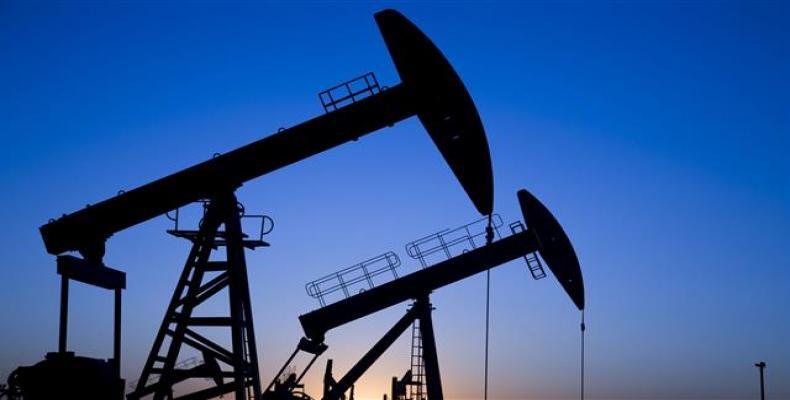Beijing, August 28 (RHC)-- China imported more than 900,000 barrels per day (bpd) of crude oil from Iran in July, up more than eight percent from the month before, data released by China's General Administration of Customs (GAC) on Tuesday showed.
The imports by the world’s largest oil buyer and more importantly the increase in shipments came despite Washington’s threat to punish companies after ending waivers to unilateral sanctions on Iranian oil on May 2nd.
According to GAC figures cited by Bloomberg, China lifted 926,119 bpd of Iranian oil in July, up 4.7% month on month. China is Iran’s largest oil importer and fiercely opposed to the U.S. sanctions which have failed to stop shipments from the Middle Eastern energy powerhouse.
Beijing has pushed back against the United States, saying China's cooperation with Iran is legitimate under international law and should be "respected".
The United States is currently engaged in a major trade war with China. Last month, Bank of America Merrill Lynch warned that a further escalation could encourage closer cooperation between Iran and China.
The Chinese government’s top diplomat, State Councilor Wang Yi, on Monday hailed Iran as a "strategic partner" as Iranian Foreign Minister Mohammad Javad Zarif visited Beijing. "We are comprehensive strategic partners,” Wang said. "That speaks to the high level of our relationship and our close strategic cooperation.”
In an apparent jab at the United States, Wang said that "unilateralism is rising and power politics is emerging." "Facing this situation, China as a responsible country agrees to work with Iran and other countries to work together for multilateralism, the basic rules of international politics and uphold the rightful interests of each country," he said.
Zarif echoed those views, saying Iran and China need to join forces to counter unilateralism and "contempt for international law." Iran's top diplomat said he was particularly excited by the Belt and Road Initiative, which aims to recreate the old Silk Road with massive infrastructure spending connecting China with the rest of Asia and beyond.
Iran considers the Belt and Road "to be the future of our region and our global interactions”, Zarif added. Earlier this month, a report said China has “re-engaged” Iran on three key energy projects which the Asian giant is adamant to carry on with their implementation despite US sanctions.
A senior source working closely with Iran’s Ministry of Petroleum said Phase 11 of the supergiant South Pars gas field, Yadavaran oil field and the Jask oil export terminal are the three projects which the Chinese want to continue.
Beijing has also braced for any fallout from its participation in Iranian development projects and possible face-off with the U.S., the international energy website OilPrice.com said. “If there is any further pushback from the U.S. on any of these Chinese projects in Iran, then Beijing will invoke in full force the ‘nuclear option’ of selling all or a significant part of its $1.4 trillion holding of U.S. Treasury bills, with a major chunk of the paper due to be sold in September on this basis,” it said.
Last month, the U.S. government imposed sanctions on China's energy company Zhuhai Zhenrong Co Ltd. for continuing to import crude oil Iran, drawing strong condemnation from Beijing.
"We are opposed to the U.S. bullying behavior of wantonly cracking down, suppressing and sanctioning Chinese companies and individuals based on US domestic law. We are firmly opposed to it and strongly condemn it," Foreign Ministry spokeswoman Hua Chunying said.
Zhuhai Zhenrong is one of China’s largest state-backed oil companies for transporting Iranian crude oil. It has strong links to Iran and accounts for more than 60% of China's trade with the Islamic Republic, according to the company's website.
The company is already under U.S. sanctions for supplying gasoline to Iran in 2012, but it has little overseas exposure, making the punitive measures worthless.


